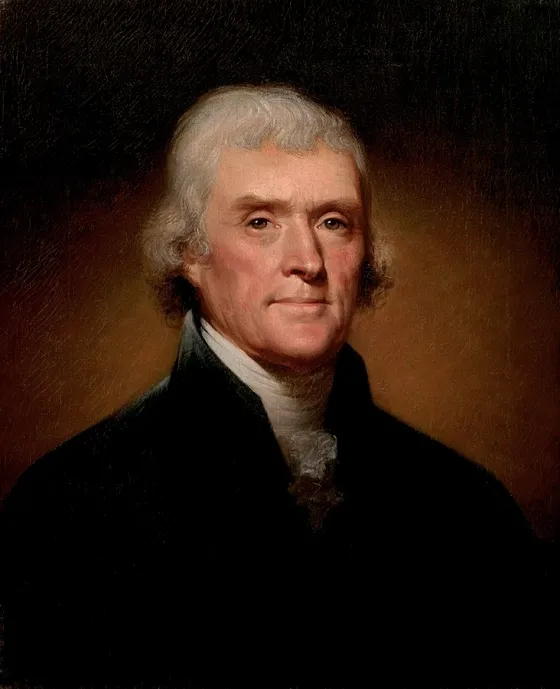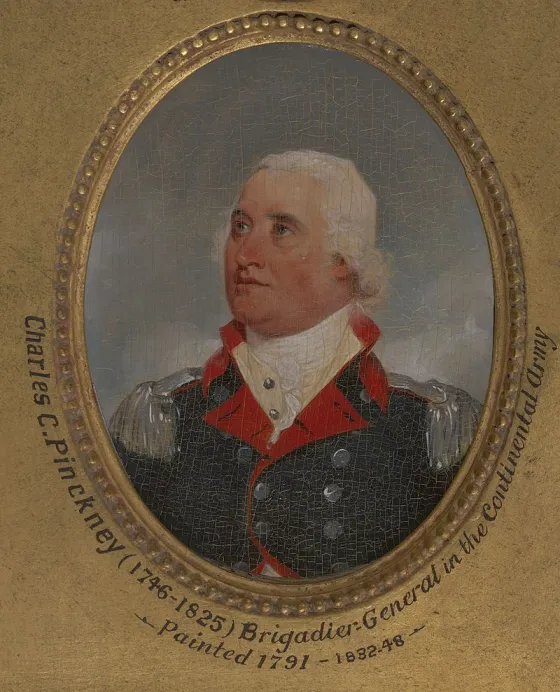The Election of 1804

The Election of 1804 brought new rules. In the handful of previous elections, the candidate receiving the most electoral votes became president and the candidate with the second-most votes became the vice president. However, as the two-party system developed, this created situations where the president and vice president were from differing political parties. In September 1804, states ratified and passed the 12th Amendment to the United States Constitution which revised how electoral votes would be counted and that those votes would be cast for president and vice president separately. Now, electors would cast one vote for the presidential candidate and one vote for the vice president candidate.
This 12th Amendment’s changes went into effect for the 1804 election and have been used ever since. Incumbent president Thomas Jefferson ran for re-election, and George Clinton was his running mate for vice president on the Democratic-Republican ticket. The Federalist Party nominated Charles Pinckney and Rufus King.

Virginian Thomas Jefferson — one of the writers of the Declaration of Independence, U.S. Ambassador to France, Secretary of State in Washington’s Administration and Vice President in Adam’s Administration—had been elected president in the Election of 1800, one of the most contentious elections in early U.S. History. During his first four years in office, Jefferson worked to reduce national debt and undo many of the financial achievements from the Federalist Era, established the United States Military Academy at West Point, created the Library of Congress, engaged in the First Barbary War and agreed to the Louisiana Purchase. This last accomplishment was the acquisition of Louisiana Territory from Napoleon Bonaparte for the price of $15 million dollars, purchasing acreage that more than doubled the size of the United States’ claimed land in North America.

Charles C. Pinckney called South Carolina his home state. During the American Revolution, he led troops in the Continental Army, fighting at Brandywine, Germantown, and the Defense of Charleston in 1780 and finishing the war as a major general. Pinckney represented South Carolina at the Constitutional Convention. During Washington’s presidency, Pinckney was a U.S. Minister to France and was involved in the XYZ Affair. Returning to the United States, he became involved with Federalist Party politics and raised hopes that he could gather support for that party in the southern states.
By the Election of 1804, however, the Federalist Party’s influence was declining. Alexander Hamilton, a Federalist leader, died in a duel during July 1804, and the party floundered with promoting Pinckney and campaigning successfully against Jefferson. Instead, the Federalists attacked Jefferson personally and politically and claimed that the Louisiana Purchase was unconstitutional. Jefferson and the Democratic-Republican Party pointed to their recent accomplishments of reduced spending and the opportunities through the territorial expansion which were popular with voters. The Democratic-Republican Party’s influence was on the rise, and in the years leading up to the election, they had been coordinating efforts to win votes in the New England states.
When the votes were counted, Jefferson received 73.2% of the popular vote and 162 electoral votes. (He only needed 89 electoral votes to win.) Pinckney gathered 26.7% of the popular vote and just 14 electoral votes. Thomas Jefferson served four more years and then watched another Democratic-Republican candidate—James Madison—win the next election. Charles Pinckney unsuccessfully ran for president again in 1808 and then retired to his plantation and law practice in South Carolina.
The Election of 1804 had several notable historical outcomes. First, it was the first election conducted under the adopted rules outlined in the 12th Amendment to the U.S. Constitution and set a precedent and example of electoral voting for all future elections. Second, the decline of the Federalist Party and the rising influence of the Democratic-Republican Party was clearly evident and would exhibit some of the challenges and evolutions of the two-party system in American politics. Jefferson and Pinckney were candidates in the long line of leaders who have run for president and their campaign and victory/defeat moments in the Election of 1804 clarified and cemented practices of the Electoral College.




